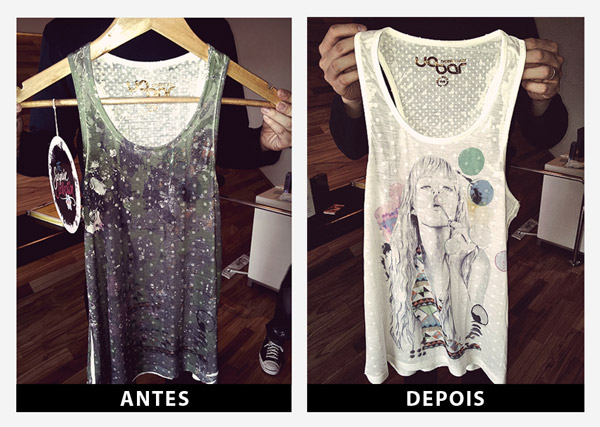Before the internet, most marketing campaigns used traditional advertising: television, magazines, and newspapers. Today, the landscape is completely different. The most effective marketing campaigns use influencers to spread the word. Influencers, in simple terms, are people who other people listen to. There’s a good reason for this: we trust recommendations from people we know and revere.
This trend has become much stronger over the last few years. A 2012 report from Nielsen, a leading consumer research firm, showed that 92% of consumers trust recommendations from family and friends more than any other form of advertising. That’s an 18% increase from just five years prior. And nearly three-quarters of consumers in the same poll said they trusted online consumer reviews. This represents a 15% increase in just four years.
Digital influencers are leaders within their communities, with powerful social networks and industry-wide credibility. This means that they can be a critical part of your marketing strategy. So how do you go about reaching these influencers? What are the key steps in formulating a solid influencer marketing campaign? Let’s go over three steps to execute a flawless influencer plan!
Step 1: Identify Your Audience
The first step is very familiar: simply determine who exactly you are selling to—not the influencers, but the people who are actually going to buy your product or service. It will help to be detailed. Concentrate on specific demographics, such as age, gender, income level, location, and interests. You may notice so far that this is fairly similar to a traditional marketing campaign.
But here’s the difference. Don’t just think about who you are trying to sell to. You also need to figure out how to best interact with them. Ask yourself which platforms they frequent. Are they more likely to browse Facebook, Twitter, LinkedIn, or another social media channel? Which types of blogs are they likely to read? Note that a whopping 86% of digital influencers have their own blog. Also, 92% are active on Facebook, 88% on Twitter, and 76% on LinkedIn. These are all prime vehicles your core audience will use to reach influencers and ultimately, reach you and your brand. So remember: the task of identifying your audience encompasses narrowing in on their demographics as well as determining their digital preferences.
Step 2: Select the Right Influencers
Once you have a clear picture of your audience, it’s time to identify influencers who can best reach them as well as be a source of credibility in relationship to your product. For instance, Rihanna has a huge following, but she won’t be of much use if your goal is to sell golf equipment. This may seem obvious, but even so, you need to take it to the next level. If you’re trying to sell Pilates classes to women in the Tampa Bay area, don’t just seek out any bloggers to relay the message. Instead, focus your search on female bloggers who are health and fitness fanatics, live in central Florida, and have a strong following of devoted female readers.
Once you’ve narrowed down the pool, it’s time to reach out. You can do this yourself, or you can use a blogger introduction site such as Tomoson.
Step 3: Give Influencers Reasons to Talk about Your Brand
After you’ve made contact with a blogger, you need to give them something to talk about. They want more than basic product information. Give them samples of your product to review, or ask them if they’d like to run a contest (and you’ll supply the prizes). Above all, give them quality content they can use over and over again. You’re not trying to write the blog for them, but you can make the task a lot easier. Attention-grabbing photos, videos, and infographics add value, as do exclusive news and fascinating facts.
Keep in mind that not everything has to be about your product. Give bloggers things they can use more generally, including anything that’s fun or humorous. In fact, many of the most successful blogger outreach campaigns are highly innovative. As an example, let’s consider Ariel, a stain remover product. The company sent Brazilian bloggers a piece of very stained clothing. They said this was part of their “Surprise” clothing collection, and they included a box of Ariel with the garment. Bloggers washed the garment with Ariel and voilà!—a pattern came to life right before their eyes, making for a very interactive experience. The bloggers were so impressed that their excitement produced huge buzz. Ariel’s campaign directly influenced three million women in Brazil—a figure that shows just how effective this type of marketing can be.
Finally: A Few Savvy Tips
Don’t treat influencer marketing as a one-way street. You can gain valuable insight from bloggers if you listen to them. They’ll give you honest feedback about your products, and they’ll teach you how to effectively address your target audience. Pay attention to the words, the cultural references, and the topics that interest them. They do all of this for one golden reason: it resonates with their readers.
Remember: don’t view influencer marketing as something you do once for a particular campaign and then forget about. Otherwise, you’re going to waste all of the effort you put in. Influencer marketing is about building lasting relationships. Make sure that you keep in contact with your influencers on an ongoing basis, even when you don’t need work from them.
Lastly, if you find some quality bloggers, you may want to ask them to write for your corporate blog. You’ll probably need to compensate them, but there are two advantages to this relationship. First, it goes without saying that bloggers appreciate being monetarily rewarded for their love of words and thought leadership. So, they’re probably going to make themselves much more available to you and will be much more flexible with blogging on a variety of topics and on short deadlines. Second, you have the benefit of bringing their audience directly to your social media channels. This gives you the opportunity to develop a direct relationship with a brand new, built-in customer base.
So, it’s no wonder that 65% of brands participate in digital influencer marketing. Has yours? Tell us about your experience in the comments below.

